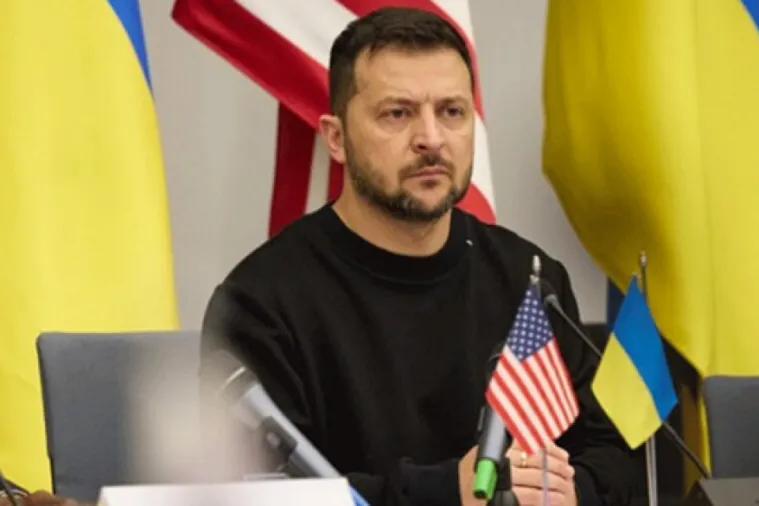 Behind closed diplomatic doors in Paris, with key European and American officials in attendance, a draft peace agreement between Russia and Ukraine was presented. Though unofficial, the plan outlines significant concessions: Ukraine would forgo NATO membership, while Russia’s occupation of certain territories would be effectively acknowledged.
Behind closed diplomatic doors in Paris, with key European and American officials in attendance, a draft peace agreement between Russia and Ukraine was presented. Though unofficial, the plan outlines significant concessions: Ukraine would forgo NATO membership, while Russia’s occupation of certain territories would be effectively acknowledged.
According to Bloomberg, the plan was introduced by a U.S. delegation led by Steve Witkoff, with the approval of President Donald Trump’s administration. Vice President JD Vance expressed continued “optimism” from Rome, while Secretary of State Marco Rubio simultaneously warned that “the U.S. has other priorities” if no breakthrough is made.
Territorial Realities and a Frozen Conflict
The draft outlines a ceasefire, a gradual easing of sanctions on Russia, and a freezing of the conflict. Territories seized since 2014 — including Crimea, Donetsk, Luhansk, Zaporizhzhia, and Kherson — would remain under Russian control. Formal recognition of these territories is not part of the proposal, but the West appears willing to accept the status quo in exchange for peace.
Kyiv has reportedly agreed to a ceasefire but expects reciprocal steps from Moscow. The Ukrainian delegation is working on mechanisms for monitoring the ceasefire and deploying potential peacekeeping forces.
European Guarantees and American Skepticism
France, the United Kingdom, and Germany are involved in the negotiations as technical guarantors. A proposal for the creation of “security assurance forces” to ensure Ukraine’s future independence and defense is on the table.
Despite these efforts, discontent is growing in Kyiv. President Volodymyr Zelensky publicly criticized Witkoff, accusing him of “playing into the Russian narrative.” Zelensky reiterated that Ukraine will not negotiate over its territory without a full ceasefire: “Ukrainian land will never be recognized as Russian,” he declared.
Russian Conditions and Renewed Aggression
Meanwhile, the Kremlin has officially ended its 30-day moratorium on attacks against energy infrastructure. In a recent strike on Sumy, 35 civilians were killed. Moscow demands the complete lifting of sanctions, an end to Western arms supplies to Ukraine, and recognition of its territorial gains.
Europe Under Pressure
There is no consensus within the EU regarding the easing of sanctions, which would require unanimous approval by all member states. At the same time, the Franco-British proposal for security guarantees is testing Brussels’ unity—especially as the new U.S. administration signals a shift in its approach to both Europe and Russia.
The leaked plan marks the end of one era and the beginning of another — the era of post-Western realism. The proposed peace agreement may not deliver justice, but it could bring an end to the war. The question remains: at what cost, and for whom?